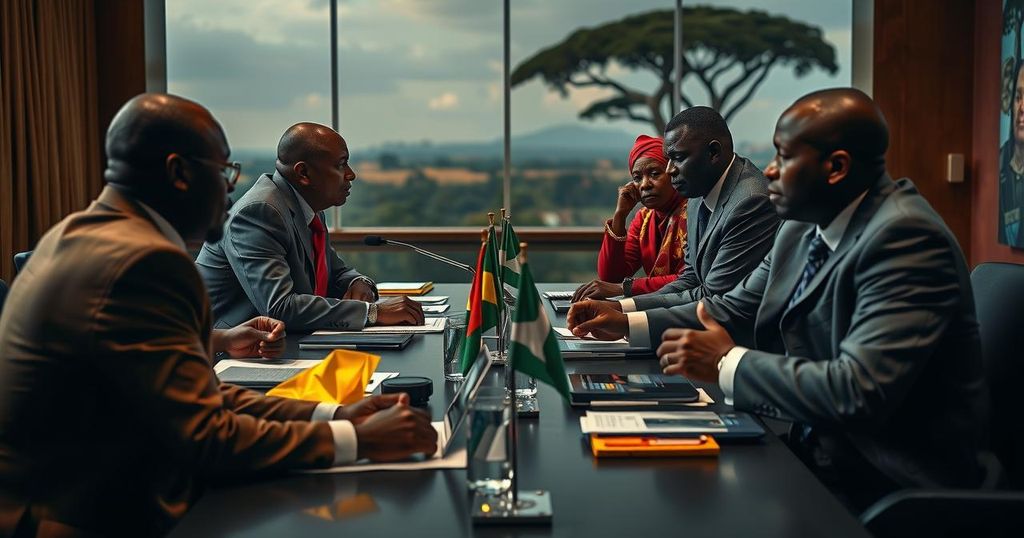South Sudan’s parties resumed peace talks in Nairobi aimed at resolving outstanding issues before a final agreement is reached within two weeks. Chief mediator Lazarus Sumbeiywo thanked participants for their patience, noting ongoing protocols to address conflicts stemming from earlier peace agreements. The talks are part of the Tumaini Initiative, fostering improved collaboration among diverse stakeholders to achieve lasting peace in South Sudan.
On December 5, in Nairobi, South Sudan’s Transitional Government of National Unity, alongside holdout opposition factions, resumed peace negotiations, known as the Tumaini initiative, which translates to “hope” in Swahili. Chief mediator Lazarus Sumbeiywo announced that the talks are expected to wrap up within two weeks, following consultations that the government delegation had recently conducted in Juba. Sumbeiywo expressed gratitude for the patience and resilience of the stakeholders involved in the peace process, emphasizing their commitment to achieving peace for their nation.
The mediation efforts involve key participants from the Intergovernmental Authority on Development, ambassadors from the European Union, the United Nations, and co-mediators from Sant’Egidio of Italy. The resumption of talks was spurred by a directive from Kenyan President William Ruto and South Sudanese President Salva Kiir, who met on November 6 in Juba to address unresolved issues before a final agreement is signed.
Initiated on May 9, the Tumaini Initiative talks initially stalled in July due to concerns raised by some parties regarding specific negotiation mechanisms. Over the course of the negotiations, parties have aimed to address lingering issues stemming from prior agreements, notably the 2016 and 2018 agreements on conflict resolution in South Sudan. By the end of August, eight protocols were established to reconcile the identified discrepancies.
Sumbeiywo pointed out that while negotiating, the parties considered ongoing provisions from the revitalized peace agreement along with new ones proposed through the Tumaini Initiative, thereby enhancing peace-building through improved implementation. A noteworthy development from these talks is the creation of the Trust and Confidence Building protocol, which has fostered a conducive atmosphere for negotiation progress.
The peace talks in South Sudan are crucial given the country’s troubled history marked by civil conflict and political instability. The Transitional Government of National Unity faces significant challenges in uniting various factions and addressing the root causes of conflict that have plagued the nation since its secession from Sudan in 2011. Previous peace agreements have often failed to bring lasting stability, highlighting the importance of the current negotiations under the guidance of international mediators and partners, including the East African regional bloc and the European Union. The Tumaini Initiative represents a renewed commitment to resolving outstanding issues that hinder peace and development.
The ongoing peace negotiations in Nairobi represent an important step towards stability in South Sudan. With key stakeholders involved and a clear timeline for resolution, the discussions aim to build on prior agreements while addressing the current grievances among the parties. The positive developments, particularly the Trust and Confidence Building protocol, indicate a potential shift towards effective peace-building that prioritizes the interests and welfare of the South Sudanese people.
Original Source: www.capitalfm.co.ke






